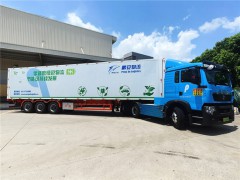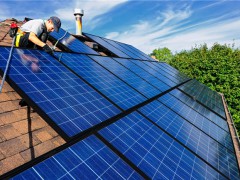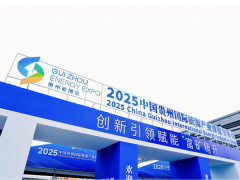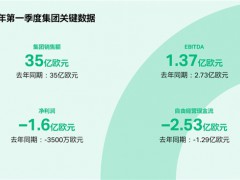???? 據(jù)今日石油2021年6月4日?qǐng)?bào)道,為了滿(mǎn)足世界能源需求,未來(lái)幾年上游投資將大幅增加。因此,圭亞那-蘇里南盆地等地的深水“優(yōu)勢(shì)桶”將繼續(xù)在全球推動(dòng)低碳能源方面發(fā)揮關(guān)鍵作用。
????美國(guó)著名綜合性石油公司赫斯公司圭亞那-蘇里南勘探評(píng)估與開(kāi)發(fā)副總裁蒂莫西·奇澤姆
????近日在蘇里南能源油氣峰會(huì)上告訴與會(huì)者,石油經(jīng)濟(jì)開(kāi)始以比預(yù)期更快的速度復(fù)蘇,包括
????國(guó)際能源署(IEA)的各種預(yù)測(cè)繼續(xù)表明,石油和天然氣在能源結(jié)構(gòu)中保持著相當(dāng)大的份額。
????奇澤姆說(shuō):“石油需求是由運(yùn)輸和石化產(chǎn)品驅(qū)動(dòng)的,而石油和天然氣在能源結(jié)構(gòu)中所占的份
????額在IEA的所有預(yù)測(cè)中都很可觀。”“但如果我們要滿(mǎn)足能源需求,我們就需要投資。”
????自2014年以來(lái),上游投資下降了40%以上,IEA估計(jì),到2040年,每年需要超過(guò)5000億美元的投資才能滿(mǎn)足需求。
????奇澤姆指出:“這有點(diǎn)令人生畏。”“正如伍德麥肯茲所說(shuō),深水石油代表著得天獨(dú)厚的石油資源。實(shí)際上,深水石油已經(jīng)表明,其碳足跡明顯低于煤炭,重油,焦油砂,甚至液化天然氣(LNG)。因此,這個(gè)目前正在脫穎而出的深水盆地將對(duì)全球能源轉(zhuǎn)型非常重要。”
????他說(shuō),如果新的石油和天然氣開(kāi)發(fā)項(xiàng)目如IEA新的凈零報(bào)告所述停止,那么到2040年,全球石油需求將導(dǎo)致供應(yīng)減少50%以上。
????奇澤姆說(shuō):“事實(shí)上,根據(jù)國(guó)際能源署的可持續(xù)發(fā)展設(shè)想,到2050年,天然氣和石油將繼續(xù)占世界能源結(jié)構(gòu)的一半。”“可再生能源屆時(shí)還將依賴(lài)于制造風(fēng)力渦輪機(jī)和太陽(yáng)能電池板所用的天然氣和石油,以及為電力負(fù)荷量和運(yùn)輸系統(tǒng)提供支持。”
????奇澤姆說(shuō),這是非常關(guān)鍵的,他指出,任何實(shí)現(xiàn)凈零排放的途徑都將包括在世界各國(guó)繼續(xù)使用天然氣和石油來(lái)取代煤炭。
????他說(shuō),赫斯公司支持巴黎協(xié)定和到2050年前實(shí)現(xiàn)凈零排放的目標(biāo)。“我們是減少溫室氣體排放的行業(yè)領(lǐng)導(dǎo)者,” 奇澤姆如是說(shuō)。“在我們的業(yè)務(wù)中,20多年來(lái),我們?cè)谠O(shè)定溫室氣體目標(biāo)方面一直是美國(guó)企業(yè)中的先行者和領(lǐng)導(dǎo)者。所以,這對(duì)我們來(lái)說(shuō)并不新鮮。”
????伍德麥肯茲表示,石油和天然氣生產(chǎn)國(guó)的政府在2021年有很多事情要考慮。更嚴(yán)格的財(cái)政條件可能會(huì)讓這些國(guó)家處于能源轉(zhuǎn)型的最前沿,但對(duì)上游行業(yè)的支持也可能仍然是優(yōu)先事項(xiàng),尤其是在經(jīng)歷了一年的經(jīng)濟(jì)中斷之后。
????像圭亞那這樣的國(guó)家,石油生產(chǎn)的收入將在推動(dòng)經(jīng)濟(jì)發(fā)展目標(biāo)方面發(fā)揮關(guān)鍵作用,它們將希望確保上游投資繼續(xù)。
????奇澤姆說(shuō):“并不是所有的政府都想要完全除掉上游投資。”“對(duì)許多國(guó)家,特別是在發(fā)展中國(guó)家來(lái)說(shuō),開(kāi)發(fā)資源、提供能源、政府收入和當(dāng)?shù)鼐蜆I(yè)仍然是較高的優(yōu)先事項(xiàng)。不過(guò),財(cái)政框架必須符合目標(biāo)。”
????專(zhuān)家們?cè)f(shuō)過(guò),圭亞那有競(jìng)爭(zhēng)性的條件是其海上勘探和生產(chǎn)業(yè)務(wù)恢復(fù)能力的關(guān)鍵,特別是在全球新冠肺炎疫情大流行導(dǎo)致油價(jià)下跌和未來(lái)市場(chǎng)前景的高度不確定性期間。
????李峻 編譯自 今日石油
????原文如下:
????Guyana-Suriname Basin will be important to global energy transition – Hess VP Exploration
????In order for the energy needs of the world to be met, upstream investments will have to significantly increase in the coming years. Deepwater ‘a(chǎn)dvantaged barrels’ in locations such as the Guyana-Suriname Basin will therefore continue to play a pivotal role in the global push for low-carbon energy sources.
????Timothy Chisholm, Hess Corporation’s Vice President Exploration Appraisal & Developments, Guyana-Suriname, told participants at the Suriname Energy Oil & Gas Summit on Wednesday the oil economy is starting to recover faster than was expected and various scenarios, including those from the International Energy Agency (IEA), continue to show that oil and gas maintains a meaningful share of the energy mix.
????“Oil demand is driven by transportation and petrochemicals and oil and gas maintains a meaningful share of the energy mix in all of the IEA’s scenarios that they’ve painted for our industry,” Chisholm said. “But if we are going to deliver the energy needs, we are going to need to invest.”
????Upstream investments are down over 40% since 2014 and the IEA estimates that it’s going to require more than 500 billion per year to meet the demand out to 2040.
????“It’s a bit daunting,” Chisholm pointed out. “Deep water oil represents… advantaged barrels as Wood MacKenzie referred to deep water oil. And they’ve actually shown that the carbon footprint is significantly lower than coal, heavy oil, tar sands and even LNGs. So, this deep-water basin that’s emerging right now is going to be very important to the overall energy transition.”
????He said if new oil and gas developments were halted as outlined in the IEA’s new net-zero report, global oil demand would strip supply by more than 50% in 2040.
????“In fact, the IEA’s sustainable scenarios find that natural gas and oil will continue to comprise half of the world’s energy mix through 2050,” he stated. “Renewable energy also depends on natural gas and oil from use in the manufacturing of wind turbines and solar panels as well as to back up electricity capacity and transportation systems.”
????Chisholm said this is very critical, pointing out that any pathway to net zero would include the continued use of both natural gas and oil to displace coal in countries around the world.
????He said Hess supports the Paris Agreement and the goal to achieve net zero by 2050. “We are an industry leader in reducing greenhouse gas emissions,” he said. “At Hess, in our operations, we’ve been a first mover and leader among US companies in setting greenhouse gas targets for over 20 years. So, this is not new to us.”
????WoodMac said governments in oil and gas producing countries have a lot to think about in 2021. Tougher fiscal terms could put countries at the sharp end of the energy transition – but support for upstream sectors could also remain a priority, particularly after a year of economic disruption.
????Countries like Guyana, where revenues from oil production will play a critical role in pushing development goals, will want to ensure upstream investments continue.
????“Not all governments will want to kill off upstream investment just yet,” Chisholm said. “For many, particularly in developing countries, the development of resources, provision of energy, government revenues and local employment are still a higher priority. Nevertheless, fiscal frameworks must be fit for purpose.”
????Experts have said Guyana’s competitive terms have been key to the resilience of its offshore exploration and production operations, particularly throughout the pandemic which has resulted in falling oil prices and high uncertainty about future market scenarios.
免責(zé)聲明:本網(wǎng)轉(zhuǎn)載自其它媒體的文章,目的在于弘揚(yáng)石化精神,傳遞更多石化信息,并不代表本網(wǎng)贊同其觀點(diǎn)和對(duì)其真實(shí)性負(fù)責(zé),在此我們謹(jǐn)向原作者和原媒體致以敬意。如果您認(rèn)為本站文章侵犯了您的版權(quán),請(qǐng)與我們聯(lián)系,我們將第一時(shí)間刪除。







